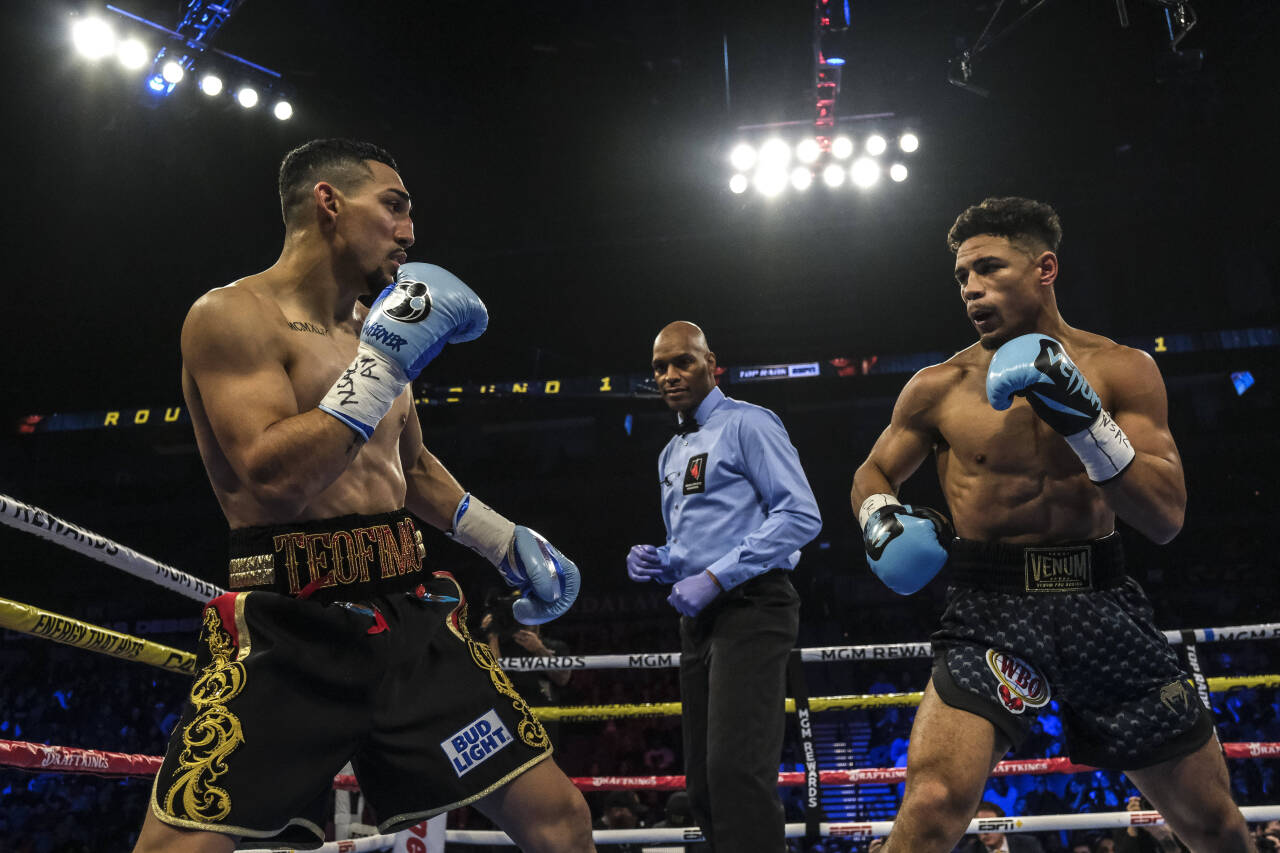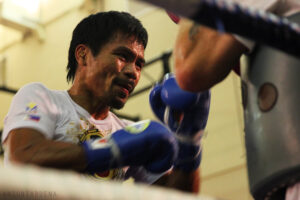Jump to
Teofimo Lopez embarrassed himself on Thursday night. Given the opportunity to ride ESPN’s Super Bowl weekend coverage, he came to the ring dressed as a king… and came out being seen as a bit of a clown. Given an opponent — Jamaine Ortiz — who wanted to make Teofimo Lopez give chase, he showed his weakness there again. What we got were 12 rounds of him loping and then leaping around after his opponent, unable to actually cut the ring off and force any extended exchange of blows. It was a limp performance, his fourth such in five fights.
Nonetheless, Teofimo Lopez got the win, with scores of 115-113 twice, and a particularly controversial 117-111. That saw an outcry on twitter, and all other places boxing is talked about, with claims that of course he did, that Ortiz never had a shot, that the win was wrong.
But was it, though? The thing about boxing is, one fighter doing badly doesn’t mean the other guy did well. And the way boxing is scored does throw up some weird results that are perfectly fine even if they go against the impression a fight left on viewers. I’ll take a look at how that happens.
Since this particular fight isn’t the only way scoring can go awry, I’ll need another example, and luckily for us, we as MMA fans have a handy recent one to reach for: Francis Ngannou‘s close loss to Tyson Fury last year. It was a fight in which the boxing newcomer vastly outperformed expectations, but did he really outperform Fury? I’ll take a look.
Frustratingly close: How Teofimo Lopez maybe won after all
First things first, though: this week’s fight. It’s pretty simple: Ortiz might have stopped Teofimo Lopez doing what he wanted, but he himself didn’t do that much either. His gameplan was built on avoiding damaging exchanges as much as possible- and that meant he was living on scraps, in terms of scoring shots, as much as Teofimo Lopez was.
That meant every round was close, and a lot of them could reasonably have gone either way. Therefore, awarding them to Lopez wasn’t wrong. Sure, he was underperforming expectations, but we don’t score boxing against expectations. We score it against the opponent. And Teofimo Lopez’s opponent wasn’t doing a great deal.
Even that 117-111 card isn’t necessarily wrong. It’s exceedingly generous, but were there four rounds that Ortiz definitely won, without question? I’m not convinced. A judge giving one fighter every close round might be infuriating, and on occasion suspicious, but it’s not necessarily wrong. If he likes what a fighter delivers in one round, and most of the rounds look like that, it’s not surprising if most of that rounds go to that fighter. But that one does raise questions. It was a closer fight than that.
So… it’s pretty reasonable to give the fight to Teofimo Lopez, as angry as we might be at him for his performance (and his ridiculous post-fight speech, in which he told a booing crowd to suck a ****). But what about a fight in which a fighter clearly did more damage over the course of the fight, but still lost? What about Francis Ngannou?
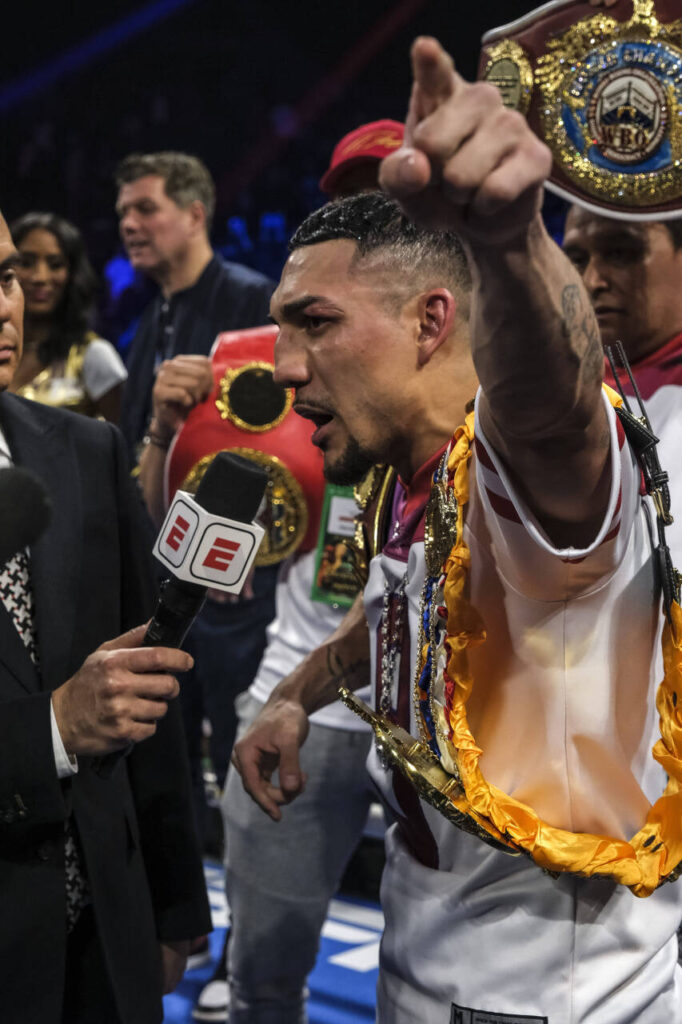
It’s not Pride rules: Why Francis Ngannou didn’t
The overall impression we got from Francis Ngannou’s performance against Tyson Fury was… he did great. And he did. He knocked the champion down, hurt him visibly on several occasions, and generally outperformed expectations wildly. In return, what success Tyson Fury did have was less spectacular, mostly about landing consistently with his jab and the occasional clean long or mid-range punch.
So, if Francis Ngannou so obviously did the more visible work, why is a Tyson Fury win a viable score? Again, simple enough: it’s scored round by round. And almost all rounds are 10-9 unless there is a knockdown. It takes far more damage than anything Ngannou did outside of that KD to get an extra point of the judges.
As a result, even though Francis Ngannou won three rounds clearly, he also only won three rounds clearly. That left seven rounds on the table for Tyson Fury to win- and even if he won none of them as cleanly as Ngannou won his, it was plausible for him to win all of them. So: a perfectly acceptable, if anti-climactic, victory.

And yet… it’s always the A-side
The thing is, though: I can type all that up, point out pretty easily why any given fight wasn’t neccesarily a robbery. Actual, stone-wall, that guy definitely didn’t win muggings are relatively rare, even in boxing. It’s much more often the case that you see these ‘well most of us agree but you could get there’ scores.
In the interests of fairness, I should say that that header is hyperbolic- it isn’t always the A-side. Chocolatito Gonzalez was, for a long time, the face of the lighter weight-classes and the frontman of HBO’s coverage of them- and yet he still has two of those controversies go against him, against Srisaket Sor Rungvisai and in his second fight with Juan Francisco Estrada. There have been others: Devin Haney had the home advantage against Vasiliy Lomachenko, but he wasn’t notably more popular than the Ukranian and the event was organised by Loma’s promoter. It’s not that it never happens that the lesser-known fighter gets the nod.
But way more often, it is that A-side that gets the benefit of the doubt. Hyped prospect, local hero, promotional darling- they seem to get the benefit far more often than not. In particular, if you think a fight is close but one of the scorecards is wildly wide, you know what’s coming. Fans watching on Thursday will know the feeling- the moment the 117-111 card was read out, it didn’t seem likely that was going to Ortiz. And it didn’t.
Reasons for bias
Why does this happen? Well, the easy answer to point to is corruption. I have to say I’m sceptical- or rather, not convinced it could be kept secret. If it was happening on the scale and frequency it would need to be to be the main answer, it’d involve the kind of conspiracy that… well, just doesn’t stay hidden very easily.
We can look over at amateur boxing for an example of that- corruption definitely rules the scoring there, but the problem is so widely known about that the IOC don’t let amateur boxing’s governing body organise the event at the Olympics anymore. Obviously there isn’t an equivalent body in professional boxing to do something like that, but the investigators who proved it?
I’m not saying it’s impossible– I’m not in a position to do that, and obviously boxing is not an incorruptible sport by any means. I’m also not saying none of the decisions under scrutiny are the result of fixing. But I do think it’s unlikely that it’d be the main reason for the frequency of this sort of scoring. Boxing is of continual interest to both investigative journalists and police (see the ongoing scandal around the Kinahan drug cartel’s involvement in the sport). It just seems like if fixing was going on on an industrial scale, with money being paid to judges on a near-weekly basis, someone would have found some kind of trail.
There are other reasons why judges may lean towards the bigger name, though.
Crowd noise is a pretty simple one. If a crowd is in favour of a particular fighter, they’ll react whenever they think he lands anything. Since it can be hard to tell what is landing cleanly in the heat of the action, the pop of the crowd can highlight the work of one fighter over another – even inadvertently.
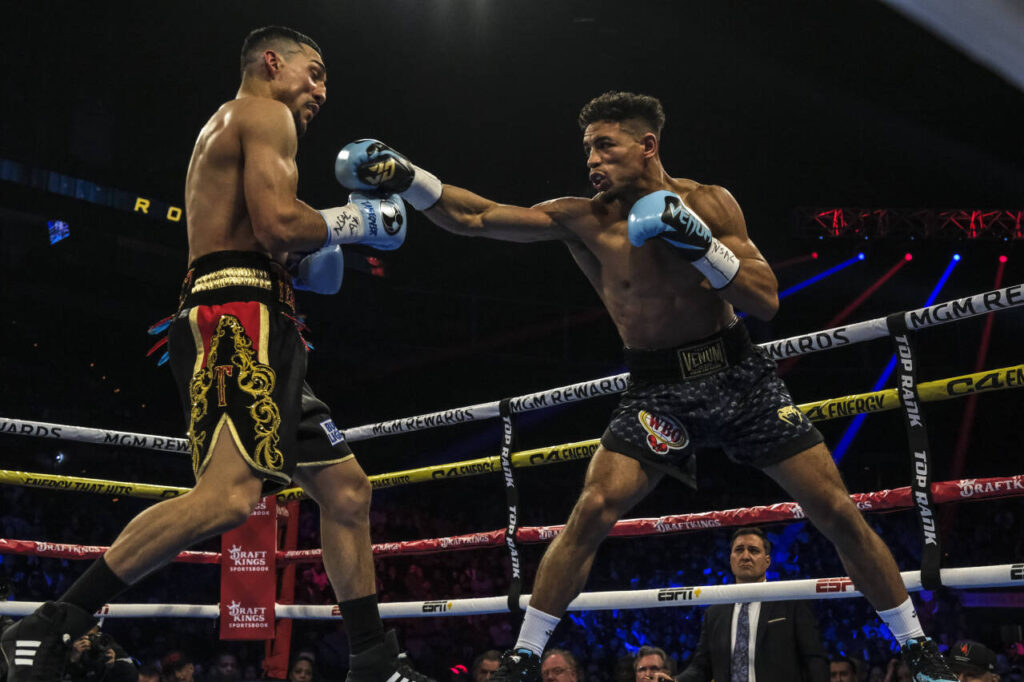
Speaking of inadvertently, we can also take a quick look towards potential influence from the promoter even without outright corruption. Promoters organise the fights- and that means that, ultimately, the payment for the judges comes from them (last point on the list here, with promoter Lou DiBella talking about it). That doesn’t mean they negotiate and hire the judges themselves- the relevant commission picks them, as a rule, or the sanctioning title body, and pay is determined by them.
But ultimately it comes from the promoter, and, per Chris Mannix in that report, they can also pick the flights and hotels. So some jobs may be more cushy than others. So some judges might be influenced, even subconsciously, by the feeling that they’re there on the promoter’s dime, and that dime might not come again if they disappoint them.
The other thing to remember is that, when bouts are televised, those of us as home are seeing things fundamentally different to the judges at ringside. We have the benefit of a constantly changing camera view that almost always keeps the action clear. The judges on the other hand have one perspective, their own angle from low down at ringside.
In some respects that is obviously better- being right there is obviously better for seeing things land than a wide-angle camera shot- but sometimes they square off, or tangle up in ways where one fighter, or the referee, is blocking the judge’s view of the punches landed, and he’s just guessing. That can lead to them giving, or not giving, points for shots that were very clear on television.
Solutions? That’s difficult
It is, of course, easy to point out all the difficulties in scoring boxing. It’s a lot harder to actually fix it.
One thing to get out of the way immediately is the question of corruption. Ultimately though that’s not a question of the rules- at least not the boxing rules. It’s already illegal to do it, so if it does happen, we can’t really do much except hope there’s better policing to stop it.
On the other hand, taking the responsibility for payment – and any say at all on picking them- out of the promoters’ hands might help stop that ‘soft’ influence. I don’t know how exactly it would work – since money mostly comes into boxing through promoters in general, because they collect the money from the fans, they’d probably have to deliver funds in some way.
One idea is to have the money delivered in the form of a periodic licencing fee to organise shows in general. And heck, maybe have judges on a salary rather than a fight-by-fight structure. That’d lessen pressure, real or imagined, to give the home promoter the result a judge thinks they want. I’m spitballing- that’d take a lot of work. But something to reduce that potential line of influence.
Another change that could be considered is more open accountability. Currently, any consequences for a bad scorecard are, if they happen at all, somewhat murky, behind closed doors, and without any given rationale. What that accountability would look like is hard to say- it’d need measures to avoid judges being open to abuse. A requirement to justify their scoring after the fight might help balance out mental pressure towards the promoter or crowd, for example- but it might also draw fan ire and make them feel even more pressure instead. Still, a written report doing so might of use, and certainly of interest.
Past that… well, it’s difficult because even if we find a change that might unquestionably make things clearer, even more objective, that would risk fundamentally changing the sport even if we changed no other rules. You can see that by looking again at amateur boxing. Except for shorter round and fight lengths, and until recently headgear, the rules are pretty much the same as the pro game- but until 2013, scoring was different, focusing on ‘clean punches landed’ as the only criteria. That led amateurs to fight a different style to most professionals, and even now ‘that amateur style’ is used in commentary shorthand to describe a boxer with clean, sound fundamentals but perhaps an overabundance of caution.
That means that even something as simple as adjusting how judges award points within the current system could change things. Right now, as mentioned, unless a knockdown is scored it’s rare for a judge to score anything other than a 10-9, and unheard of for more than that. Awarding 10-9 for close or uneventful rounds and 10-8 for wider ones, with 10-7s doled out for absolute dominance, would mean more reward for clean dominance. It’d certainly have given Francis Ngannou more chance of getting the nod against Tyson Fury.
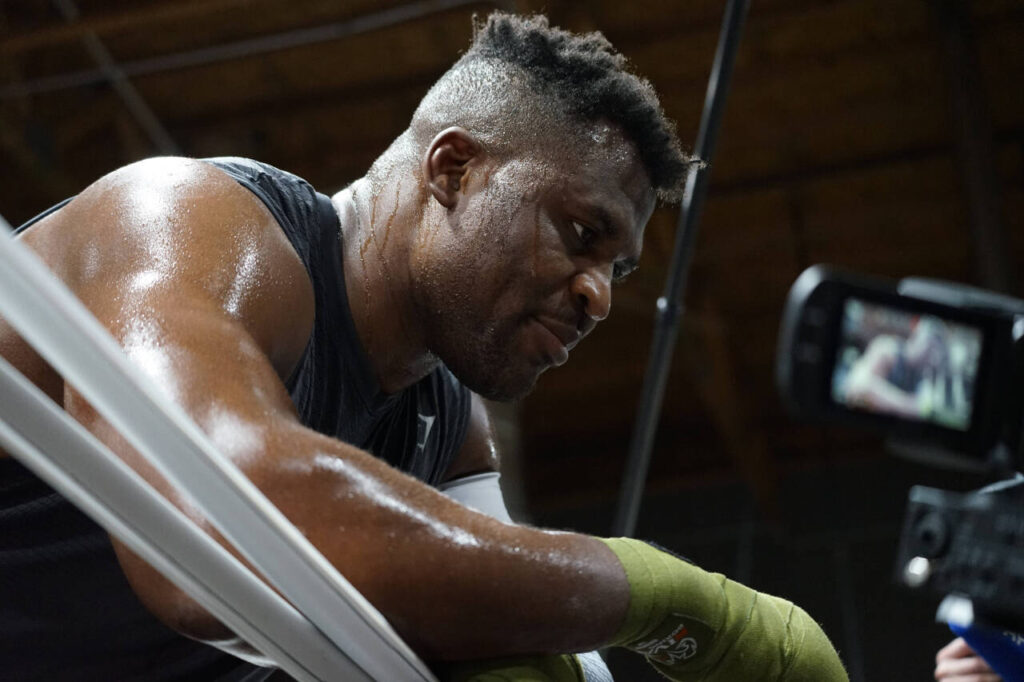
I’d be all for more clear rewards for good work, but it would need caution- for one, judges would have even more power than they do now, and for another, as mentioned, it would change what styles are rewarded, and thus how the sport is fought. It’s a potential idea, but it’s not a clean and definite solution, and almost certainly would also need to be implemented in tandem with some aforementioned greater oversight over judges, or risk making things even worse.
One thing I’d be fully in favour of is giving judges a screen. They’d still be expected to watch the fight in the ring for the most part, but if the fighters are in a position that the judge just can’t see what’s going on, a screen would certainly help. It gives no-one anything for a judge to be guessing how much is landing because they’re clinched up on the ropes in front of him. A view into that clinch could only help.
That would only help part of the problem, but it seems a fairly clean and easy thing to introduce.
But something has to give
All that is to say, I don’t have any actual answers… but I’d love to see something change. Even for me as a pretty hardcore boxing fan, it gets draining to see month after month of “I don’t think that’s quite right” scores even if I don’t think it’s a robbery. And for more casual viewers, it frankly just risks driving them off. Something has to change.
Whether that’s outright rule-changes, accountability, or just some good old fashioned “get some younger judges in”, I don’t know. Maybe all three.
About the author

